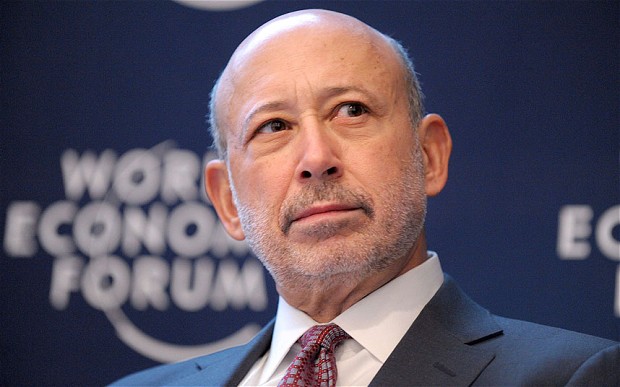Goldman Sachs CEO Lloyd Blankfein has described how financial regulation can prevent FinTech startups challenging the investment bank, acting as a “moat” around their business.
On May 20, speaking as part of a series of self-produced podcast interviews with Goldman Sachs executives, Blankfein talked to Jake Siewert, Goldman's head of corporate communications, about the value he sees in the technology sector and its potential impact on their own core business.
“All industries are being disrupted to some extent by new entrants coming in from technology. We, being technology oriented ourselves, try to disrupt ourselves and try to figure out what's the new thing, and come up with new platforms, new forms of distribution, new products.”
Expanding on these thoughts however, Blankfein recognizes that unlike the examples he draws of Amazon disrupting the business of Barnes and Noble, Goldman Sachs exists in a reasonably defended position.
“It's very hard for outside entrants to come in disrupt our business simply because we're so regulated. We hear people in our industry talk about the regulation, and they talk about it with a sigh about the burdensome of regulation. But in fact in some cases the burdensome regulation acts as a bit of a moat around our business.”

These comments come as the investment bank is opening its annual shareholder meeting in San Francisco on May 22, aimed to highlight Goldman's associations with the tech sector. In his interview Blankfein takes this message further, by telling Siewert that “we are a technology company."
Keen to stay relevant to the development of new technology sectors, especially those involved in finance technologies, Goldman Sachs has made large efforts in the last few years to become involved in tech communities. Case in point, the 146 year old institution seems willing to put its money behind its words having made headlines when it led a Series C investment round totaling US$50 million into Circle, the digital currency wallet and exchange service targeting mainstream adoption.
Business Insider Magazine describes how the investment bank is fighting to evolve beyond other investment banks, and ingrain itself in developing technological possibilities.
“Goldman has arguably been the most aggressive in making strategic investments and reshaping itself for a digital world. Roughly one-quarter of its 34,400 employees now work in tech.”
Having commented on the “moat” like protection these complex financial regulations provide for Goldman, Blankfein then seeks to clarify his comments, distancing the company from potential accusations that these are a deliberate or favored policy by the company.
“I'm not saying that's intended, I'm not saying that's it's good for the industry, I'm not saying it's something we really like, I'm just reporting to you that there are parts of our business that in order to be in it, you have to be a regulated entity, and be bank holding company, and take on certain burdens that go with that, and a lot of people are unwilling to do that.”
The force of these US financial regulations, however, is already putting pressure on FinTech companies who are building some of the first products on top of such innovations as cryptocurrencies. Back in January 2015, BitInstant founder Charlie Shrem was sentenced to two years in prison for “aiding and abetting unlicensed money transmission,” while processing bitcoin transactions to and from the Silk Road marketplace.
As regulators seek to apply the existing rules and processes to small financial startups, there are growing fears that these heavy regulations may push innovation and new business overseas, where regulation is either less-formed or more favorable to FinTech. The UK government's UK£10 million pledged to digital currencies research, demonstrates the desire among other government's to foster these technological developments.

